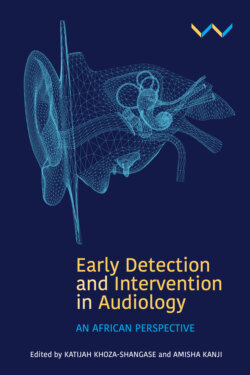Читать книгу Early Detection and Intervention in Audiology - Группа авторов - Страница 22
На сайте Литреса книга снята с продажи.
Solutions and recommendations
ОглавлениеAudiologists should engage with EHDI guidelines or position statements where they exist in their countries. In the absence of these guidelines, LAMI countries in sub-Saharan Africa should consider using the South African guidelines as a foundation to contextualise EHDI in terms of key principles and benchmarks for their respective health care context(s). Provincial and national forums should be used as platforms to advocate for the mandating of existing EHDI guidelines by the DoH in South Africa, and by relevant structures in the rest of the continent.
In countries where audiologists or hearing health care services are limited or non-existent, South Africa could lead the way with sharing best practice and suggesting possible solutions for these contexts. One such solution may be to implement appropriate NHS services at different levels of service delivery. For example, UNHS at PHC level and TNHS at hospital level may increase coverage rates and facilitate the screening of both well babies and high-risk neonates. If and where possible, non-audiologists who have been adequately trained, with adherence to the United Nations task-shifting guidelines, may also be used to conduct NHS as this will address the evident human resource shortages. However, NHS programmes would still need to be managed by a qualified audiologist, as is regulated in the South African context.
PHC re-engineering in countries such as South Africa needs to be considered as a platform for early detection services, particularly as this strategy forms the cornerstone of addressing the social determinants of health (Scott et al., 2017). PHC also provides a commitment to universal health coverage and primary care, which are important when considering early detection of hearing impairment. In addition, there should be a key emphasis on health reforms in resource-constrained contexts such as South Africa, by ensuring the inclusion of not only curative but also preventative and promotive primary health services (Ataguba et al., 2015). Early detection of hearing impairment is thus important, particularly as it is a secondary prevention strategy within the PHC service delivery.
The SDGs include indicators related to maternal, newborn and child health, and universal coverage. Framing early hearing detection services within these indicators may facilitate support from government, and ensure that whatever initiatives are implemented have political backing and are therefore sustainable. Foreign aid and government health spending have reportedly increased during the period of the MDGs. Similarly, addressing SDGs will also require resources. Perhaps the use of foreign aid during the period of SDGs may be effective in supporting the implementation of UNHS services, if mandated by government.
